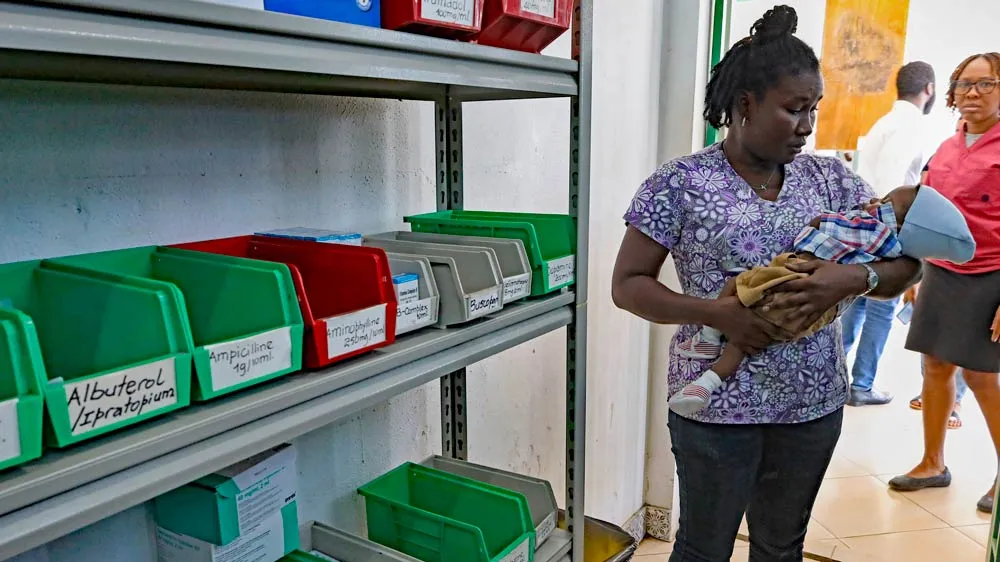August 1, 2013
Pope's Comments Push LGBTQ Equality Issues Forward
David Perry READ TIME: 4 MIN.
Pope Francis stunned Catholics and several other denominations when he declared, "If a person is gay and seeks the Lord and has good will, who am I to judge that person?"
The Pontiff, speaking in Italian, was fielding questions from reporters during his return to Rome after a successful tour in Brazil when the question of gays in the priesthood arose, and the rumor of the "gay lobby" that supposedly forced his predecessor Pope Emeritus Benedict XVI into retirement.
"The Catechism of the Catholic Church explains this point beautifully," the Pontiff said, "it says, these persons must never be marginalized and 'they must be integrated into society.'" In the discussion, Francis kept the tone light and used the word "gay," rather than the dispassionately clinical "homosexual." He also dismissed the idea of a gay cabal, joking, "I have yet to find on a Vatican identity card the word 'gay.'"
However informal, Francis's position is markedly different from the hard-line Benedict, who in 2005 signed an edict barring men with "deep-seated" homosexual tendencies from becoming priests, and called gay clergymen "one of the miseries of the church." For LGBTQ Catholics, Francis's comments were as gratifying as they were unexpected, and send a softer message compared to those of past popes to the world's 1.2 billion Catholics.
"We certainly found it a welcome change in tone from anything that we have heard from his two predecessors in the papacy," commented Marianne Duddy-Burke, executive director of DignityUSA, the largest organization of LGBTQ Catholics in the United States. "I think that the kind of response that the pope's words have elicited just shows how hungry LGBTQ Catholics and their families for even a modicum of respect to come from the folks at the highest level of our church or any church leadership position."
Francis's statements, however brief, are a marked difference from standing Vatican policy. While official Catholic doctrine describes homosexuality as a "disorder," the Catechism, the holy teachings of the Catholic Church, mandates LGBTQs "must be accepted with respect, compassion, and sensitivity." This straddling of both camps stems from the long-established fact the Holy See views as a sin any sort of sexual activity for purposes outside of reproduction.
Contrary to popular belief, the Catechism is not written in stone. Duddy-Burke points out that the Vatican's official line on slavery, its views on a heliocentric solar system, and charging interest on financial transactions have all been subject to change; and Pope Francis is not speaking in a vacuum.
While sticking with established views, Pope John Paul II revolutionized the perception of gay men and women in his "Letter to the Bishops of the Catholic Church on the Pastoral Care of Homosexual Persons" by explicitly saying the state of being homosexual is not by itself evil or sinful -- although he did go on to say the physical practice of it was, and recommended all gays and lesbians remain celibate. As Archbishop of Buenos Aires in his native Argentina, Francis opposed same-sex marriage and laws allowing gays and lesbians to adopt children, but at the same time expressed his support for civil unions for same-sex couples, which, at the time that he voiced it, was a fairly unorthodox view.
Duddy-Burke and other LGBTQ Catholics are not expecting a protean change on LGBTQ normalization during Francis's papacy, but they do see how the pope can influence.
"In the same way that Barak Obama says something, it's heard in a different way because he is the president," Duddy-Burke explains. "The power of the office is behind everything that he says. I think the same is true for the pope, who has enormous spiritual, pastoral, and political authority all across the globe."
If Catholics suddenly find themselves tussling in earnest with the issue of gay priests and LGBTQ laity, they are not alone; Anglicanism faces a schism over the issue between its Western and African parishes. Other denominations take more definitive stands: The Southern Baptist Convention has huge influence within the anti-gay Christian right, while the Episcopalian Church is already approving same-sex unions and developed a rite to go along with it. Methodists have no stance on the issue, determining that homosexuality, abortion, and several other hot-button social issues are between the individual worshipper and God. Contrary to church leaders' decrees, lay Catholics as a group in the United States and the West tend to be fairly liberal, with their support for gay and lesbian equality, partnerships, and families being well established.
"Our work is really about closing that gap and helping our leaders catch up," said Duddy-Burke.
Francis' remarks left the Catholic clergy scrambling for clarification. On CBS' This Morning, Archbishop of New York Cardinal Timothy Dolan, who in the past compared same-sex marriage to incest and communism and this year forbade any church property in his diocese to be used for LGBTQ ceremonies, interpreted Pope Francis remarks in a familiar "hate the sin, love the sinner" context. Dolan went on to say the Pope's comments in no way represented a more liberal viewpoint on LGBTQ issues. Other officials, such as Cardinal Richard Lennon of the Diocese of Cleveland, refused to release any statement at all.
"I think that the bishops and the cardinals of the church in particular are paying attention to what Francis is doing," Duddy-Burke says. "And they have a lot of power. What they say and do has implications for everything from the kind of sermons that are preached in Catholic churches on Sundays to whether there is a Catholic official willing to stand up against a government that is considering making homosexuality a capital offence. The ramifications really are enormous."
David Perry is a freelance travel and news journalist. In addition to EDGE, his work has appeared on ChinaTopix, Thrillist, and in Next Magazine and Steele Luxury Travel among others. Follow him on Twitter at @GhastEald.


